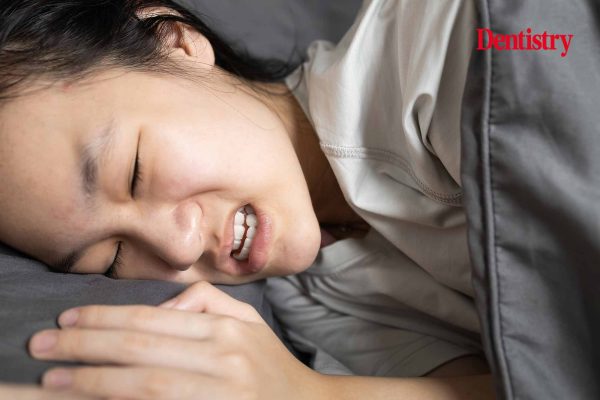Clenching your jaw in your sleep could lead to headache-related disability among those with chronic migraine.
Published in BMC Neurology, the study found that nocturnal jaw clenching should be considered as both a potential perpetuating and confounding co-factor of chronic migraine.
Although the underlying pathology of migraine is currently unknown, it is thought to involve overactivity in certain nerves.
Dentistry’s top stories
- Calls for GDC to stop overseas dentists registering as hygienists
- Profession ‘gutted’ over outcome of dentistry talks in Northern Ireland
- Smoking versus vaping: which is worse for your teeth?
- UK sugar consumption drops within a year of sugar tax
- UK to introduce licences for Botox procedures.
Previous research suggests habitual nocturnal jaw clenching as a potential migraine trigger. This is especially relevant among those who have headaches when waking up.
Researchers carried out a blind study among 25 chronic migraine sufferers who attended a headache centre.
After being referred to a dental practice, participants were treated using both a nociceptive trigeminal inhibition (NTI) oral device and a placebo.
The NTI was developed to minimise clenching intensity. An intraoral mouthpiece, it was approved by the FDA in 2001 for the treatment of medically-diagnosed migraine pain.
Improved symptoms
Before the study commenced, patients completed a Headache Impact Test (HIT-6) questionnaire.
After a randomised allocation of either 30 days of NTI splint use or placebo splint use, patients completed another questionnaire and switched to the other device.
- 68% of patients using the NTI as measured by sequential HIT-6 scores had at least a one-category improvement compared with 12% when using a placebo device
- 36% of patients using the NTI device reported a two-category improvement in their HIT-6 score, compared with 0% when using placebo
- In addition, no adverse events were reported by any patients.
Follow Dentistry.co.uk on Instagram to keep up with all the latest dental news and trends.


